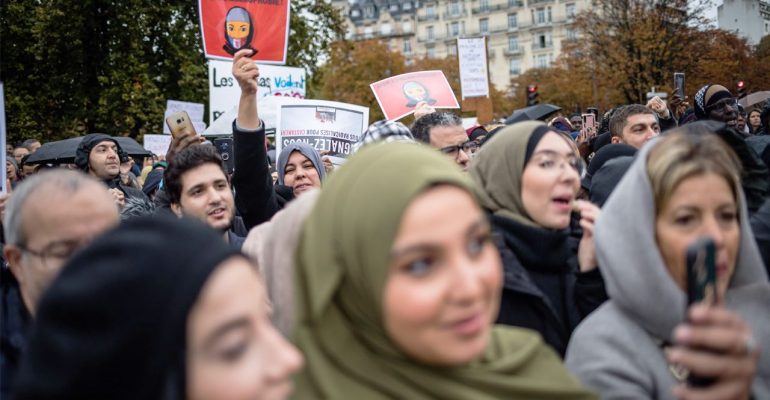ECCAR to collect best practices on tackling anti-Muslim racism by European cities
June 29, 2021 2024-03-18 14:36ECCAR to collect best practices on tackling anti-Muslim racism by European cities

ECCAR to collect best practices on tackling anti-Muslim racism by European cities
July 1st marks in Germany the Day against Anti-Muslim Racism. It dates back to the same day in 2009 when during a court trial in Dresden Marwa El-Sherbini was stabbed to death by a man whom she was accusing of an anti-Muslim hate crime against her.
The issue of anti-Muslim racism, however, exists all over Europe. Depending on the country, its manifestations are connected to the specific political, historical, and social relations in the society. However, similarities in patterns can be pinpointed in the ways how Muslims and people who are perceived as such face multiple forms of intolerance, hatred, and discrimination in all European countries. Academic research and reports from civil society organizations show that Muslims do not only experience violence and verbal harassment, but also structural forms of discrimination in terms of equal access to education, the labor market, and the housing market.
To support its member cities to tackle anti-Muslim racism, European Coalition of Cities Against Racism (ECCAR) established a permanent working group led by the City of Heidelberg in December 2020 that has received funding from the European Commission for the year 2021. In June 2021, ECCAR hired Ms. Linda Hyökki as the coordinator of the working group. Ms. Hyökki is writing her Ph.D. thesis on anti-Muslim racism in Finland with the Ibn Haldun University and has previously worked as an expert with academic and public institutions. Together with ECCAR’s member cities, researchers, and civil society actors, Ms. Hyökki will work to analyze how local governments can act against anti-Muslim racism in their capacities as democratic institutions, employers, service providers, and public contractors.
The project reflects the EU Anti-Racism Action Plan 2020-2025, which points out the important role played by cities and local governments in fighting racism and discrimination.








